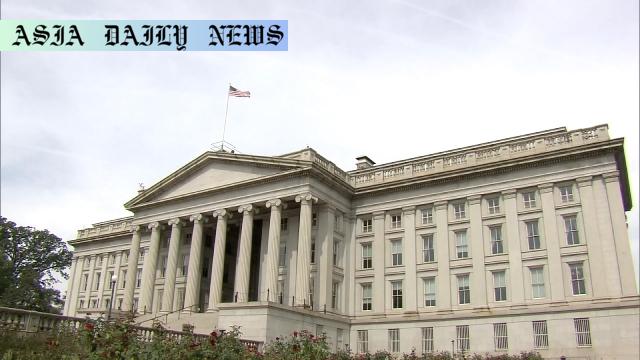Iranian oil sanctions, US imposes penalties on entities in China, UAE, and India for facilitating Iran’s crude oil shipments.
- US sanctions entities in China, UAE, and India for Iranian oil exports.
- Crackdown aims to stop oil revenues funding Iran’s nuclear and regional activities.
- Treasury highlights links to groups like Hamas and Hezbollah.
- Efforts align with broader sanctions under the Trump administration.

US Sanctions: Targeting Iranian Oil Shipments to China
The United States has recently intensified its sanctions against Iran, focusing on a global network allegedly responsible for the export of Iranian crude oil to China. This move underscores the ongoing effort by the US to hinder Iran’s oil exports, which serve as a significant revenue source for its controversial nuclear program and support for regional groups.
Entities Across Multiple Nations Face Sanctions
The US Department of Treasury announced that the sanctions impact entities and individuals based in key countries such as China, the United Arab Emirates (UAE), and India. These sanctions also extend to vessels implicated in shipping Iranian oil. According to the Treasury, the listed entities operate on behalf of Iran’s armed forces and a front company already under sanction. By targeting such entities, the US intends to disrupt Iran’s ability to use oil revenues for regional destabilization efforts.
Connection Between Oil Revenues and Regional Instability
Iran’s oil revenue plays a significant role in funding activities across the Middle East. The Treasury noted that these revenues support groups like Hamas, the Houthi movement in Yemen, and Hezbollah in Lebanon. These organizations have been linked to conflicts and instability in the region, reinforcing the importance of cutting off their financial streams. The sanctions are not just economic measures but part of a broader strategy to curb Iran’s influence.
US Objectives in Sanctioning Iran
The Trump administration, which reinstated sanctions on Iran following the US withdrawal from the 2015 nuclear deal, emphasizes its commitment to preventing Iran from developing nuclear weapons. Treasury Secretary Scott Bessent stated that sanctions aim to limit funds used for creating ballistic missiles and unmanned aerial vehicles. He reiterated the importance of ensuring that these malign activities are undermined through strategic economic measures.
Potential for Diplomatic Negotiations
While the sanctions signify a hard-line stance, the US has expressed an interest in peaceful negotiations with Iran. Former President Donald Trump noted his preference for an agreement that would allow Iran to prosper while adhering to global nuclear standards. However, such dialogue appears to hinge on Iran’s compliance with international expectations regarding its nuclear ambitions.
Broader Implications for Global Energy Markets
The sanctions also shed light on the complexities of global energy markets. With entities around the world involved in the Iranian oil trade, tackling these networks becomes a multifaceted challenge. As nations like China and India remain significant players in the global energy sector, managing political and economic consequences is critical for maintaining stability.
Conclusion: Strategic and Regional Impact
The sanctions on the Iranian oil network signify the United States’ resolve to curb Iran’s influence and nuclear ambitions. By targeting financial channels fueling regional groups and military advancements, the US hopes to bring about a shift in Iran’s approach to international diplomacy and regional policies. The ongoing situation remains dynamic, with impacts on global politics and economic landscapes still unfolding.



Commentary
The Significance of Sanctions on Iranian Oil
The recent sanctions imposed by the United States on entities involved in exporting Iranian crude oil highlight significant geopolitical and economic complexities. The strategic focus on disrupting Iran’s financial channels demonstrates the lengths to which the US is willing to go to curtail Iran’s nuclear and regional ambitions. This approach aligns with the broader aim of halting Iran’s destabilizing influence in the Middle East.
A Delicate Balance of Power
Tensions between nations often play out on economic battlefields, and this instance is no exception. The targeted sanctions bring into focus the ripple effects on global energy dynamics, particularly in countries like China and India, which are significant oil importers. By taking action against entities within these nations, the US showcases its determination but also raises questions about how such policies might affect diplomatic relations with key trading partners.
Impact on Iran’s Policies
It remains to be seen how Iran will respond to this renewed pressure. On one hand, the sanctions aim to isolate Iran financially. On the other, the US has expressed a willingness to engage diplomatically, offering Iran a potential pathway to alleviating sanctions in exchange for compliance with global nuclear norms. Whether Iran pivots in response to these measures will shape the region’s future stability.
A Complex and Evolving Dialogue
The sanctions reinforce the intricate nature of global diplomacy, where economic actions serve as both punitive measures and invitations to negotiation. Ultimately, while the immediate goals of these sanctions are explicit, their long-term effects will depend on how the various stakeholders—nations, organizations, and individuals—choose to navigate this challenging terrain in the years to come.